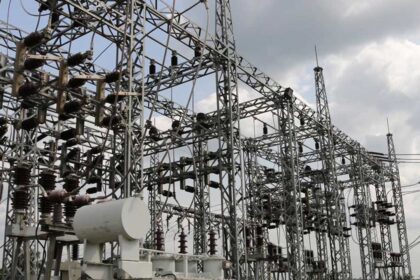
One of the aircraft manufacturers, Airbus has revealed that an additional 159 aircraft will be needed to serve the Nigerian market by the year 2042.
This means that the demand for air travel in Nigeria is expected to grow significantly over the coming years.
The Airline Marketing Director, Africa, Airbus, Joep Ellers stated this on Tuesday, during a press conference in Abuja.
Ellers highlighted the rapid growth of the Nigerian aviation industry and the increasing need for more aircraft to cater to the rising number of passengers.
He said the surge in demand is primarily driven by a growing middle class, increased urbanisation, and a thriving economy.
According to him, Airbus being one of the leading aircraft manufacturers in the world, recognises the importance of meeting this demand. They have analyzed the current market trends and predict a strong need for both single-aisle and wide-body aircraft to support Nigeria’s aviation sector.
He further estimated that Africa would require an additional 1,180 aircraft between 2019 and 2042, while at least 75 percent of such aircraft, representing 880, would be typical single-aisle and 300 of such airplanes would be wide-body.
This, he said, represented 25 per cent of the total airplanes that would be required on the continent within the period.
“Between 2019 and 2042, the Gross Domestic Product (GDP) will grow by 3.3 per cent yearly in Africa, while its population will increase by 831 million within the same period.
“Urbanisation in Africa will grow by 492 million, and the traffic would grow annually by 4 per cent for the next 20 years,” Ellers added.
He added that air transport would continue to grow by at least five percent annually in Nigeria for the next 20 years, noting that the sector would grow by over 4 percent yearly in Africa between 2019 and 2042.
He also said that passenger traffic in Nigeria would increase by 2. 9 per cent over 2019-2042, while projecting that North American traffic would grow in Nigeria by 3.3 per cent in the next 20 years and traffic between Europe and the country would grow by 3 per cent within the same period.
He also projected that the traffic would increase by 4. 7 per cent between Nigeria and Latin America, adding that the traffic is estimated to grow by 5.1 per cent between Nigeria and the other African countries.
The traffic would increase at 4.5 percent between the country and the Middle East, while it grows at 5.6 per cent at Asia Pacific.
Ellers added that for the African continent, air transportation would grow faster than the world’s average, stressing that this would be bolstered by the continent’s growing population, which is the fastest in the world.
This, he said, would be boosted by urbanisation and middle-class development, the attractiveness of inbound tourism and the potential of the Single African Air Transport Market, which has been adopted by most countries on the continent.







